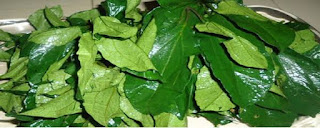WATCHING YOUR BABY'S POOP
Poop (feces) are the metabolic waste that your baby passes out from his/her digestive system through his/her anus. Poops could get solid, semi-solid, or liquid form. Poops vary significantly in appearance (size, color and texture) depending on the state of the baby'seats digestive system, diet and general well-being.
It is very important for mothers to know that their baby's poop (color, size, texture or frequency) is determined largely by what they feed their babies with. The state of health of their babies also play a key role in what the baby's poop look like.
There are several possible type of poops in babies. This article will look into some of them, their causes and solution.
New born poop: This is the first poo passed out by a new born, few hours after his/her arrival. It is called meconium. It does not smell, it contains higher percentage of amniotic fluid, skin cells, mucus and some stuff ingested by the babies in the uterine. It is greenish and tar in colour. It is important for a new born to pass this poo. If after 24 - 48 hours of delivery, a new born doesn't pass this poo, there is need to call the attention of a doctor. This could be a sign that the baby's gut is blocked. Surgery might be required to unblock it.
Hard poop: This kind of poops can also be referred to as constipated poop. It usually cones out hard looking like tiny pebbles or stones, sometimes it could be with a stain of blood. By constipation, it means bowel movements are nit frequent or hard to pass. Constipated poop is commoner in babies fed with formular or solid foods. Constipated poop can lead to the feeling of discomfort in babies, it can make them cranky, because of the pains they feel around their anus in the process of passing this constipated poop.
At the initial stages of observation, you can give your baby enough water, orange juice, pear juice or prune juice. If the condition persists after 48 hours, please contact your doctor.
Poop with partially undigested food: This is a poop that contains undigested foods in it, these foods travel quickly through the intestines, thus they don't have time to completely breakdown. Examples of these foods are beans, nuts, seeds, corn etc. This poop can be passed by your baby when he/she eats a stereotyped food or does not chew the food completely before swallowing it.
If your baby passes this poop with partially undigested food for more than 2 days, there is a need to be checked by a doctor, to be sure his/her intestines are absorbing food and nutrients adequately.
Frequent Poop: This is the poop that is light brown in colour, moderately loosed. It is common in babies that are being breastfed. This poop occurs roughly between six to ten times in a day. Breastmilk is easily digestible in babies, hence babies tend to move their bowels often after every feeding.
However, it stabilises between three and six weeks after delivery. Mothers should be on the look out if a baby is putting out a weak or exhausted disposition after about three rounds of pooping. The attention of a doctor might be required.
Poop with mucus: This is the kind of poops that looks streaked with shiny, glistening and shimmy substances. These substances are called mucus. Mucus find their way into the baby's poop through the baby's saliva. Saliva often goes undigested into the human system. It is not an abnormally to spot mucus in your baby's poop, but if it persists for more than two days, it could be a sign to show that your adorable is having an allergic reaction or he/she is having an infection. What to do? Call or visit your doctor.
Diarrhoea: This is a condition in which your baby passes poop that is either brownish, greenish or yellowish in colour, which is usually runny and watery in form. This kind of poops seeps or explodes out of the baby's diaper. It could be a symptom that indicates that your child is having an allergy or infection. Diarrhoea can be lufe-threatening if not addressed immediately and appropriately, because it dehydrated through baby. Dehydration can lead to death.
When a baby is having frequent watery and runny poop more than two hours, please take him/her to see the doctor.
Nevertheless, there are certain type of poops that deviate out rightly from the normal. These poops necessitate mothers to seek immediate medical attention if they occur in their babies.
These categories suggest one or two serious problems that may affect or are affecting the child.
Melena: This is a thick blackish poop, which consists majorly digested blood.
Currant Jelly Poop: This is a poop that is composed of about 95% red blood. This poop is a sign of a serious intestinal problem.
Alcoholic Poop: This is a chalky, Pakenham and clay coloured poop. It is a sign a vary has liver or gall bladder ed failure.
It is however importantto note as mothers that bowel movement (normal) in babies is a good telltale that your adorables are healthy.
At Teeshafo Foods, we advice mothers to feed their babies right, because "Happy Babies begets Happy Mothers".
TEESHAFO FOODS is an Organic Baby Food Manufacturing Company in Nigeria. We are duly registered with the Corporate Affairs Commission, with our registered office address at 128, Nureni Yusuf Street, Kola-Alagbado, Lagos State.
We have a range of Organic Foods for babies from 6 months. Our products have been tried, tested and highly recommended.
To place your orders or for further enquiries, call 09023526527 or email fteeshafo@gmail.com.
Feel free to go through our website www.teeshafofoods.com to read more about us and our products







Comments
Post a Comment